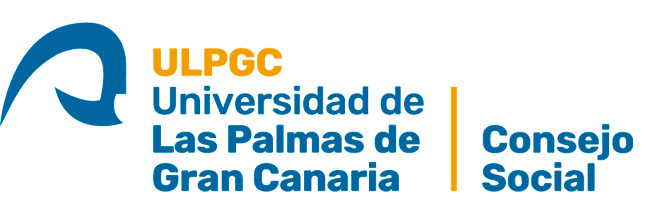The plenary approved both reports, which reveal the work undertaken by the Social Council during 2019 “and represent our being held accountable to the Canary Island society”
During a plenary session, the ULPGC Social Council submitted and unanimously approved their Management Report and their budget settlement for the 2019 financial year. The Social Council’s secretary general, Miguel Ángel Acosta, highlighted that the Social Council’s final 2019 budget amounted to 528,393.96 euros, following amendments to the draft Canary Island regional budget. This saw the Social Council’s initial funding rise by 60,000 euros, with the aim of increasing the Human Resources assigned to the ULPGC Internal Monitoring Department, which falls under the authority of the Social Council.
Among the main projects launched and carried out in 2019, which were highlighted by the Social Council in their 2019 budget settlement and Management Report, were the initiatives inspired by the ULPGC’s 30th anniversary. These include the organisation of the discussion “The Past, Present and Future of the ULPGC” [El Pasado, Presente y Futuro de la ULPGC], an event which was open to the public with the participation of the four rectors who have headed the ULPGC since its foundation in 1989.
In 2019 the Social Council continued to strengthen the relationship between the University and those from the islands’ society and businesses, with various meetings being held with representatives of professional bodies and the organisation of a new edition of the ‘Breakfast Lectures’, which invites representatives of the Canary Islands’ society, businesses and academia to share a space for discussion.
Moreover, two new editions of the University Debate League were organised, with more than a dozen teams of university students participating. The ULPGC Debate Society’s Public Speaking Workshop also continued to be promoted through organising workshops and lectures open to the whole university community with the aim of providing training in communication skills and abilities.
2019 also saw the publication of the study conducted on Bachillerato students [Informe Estudiantes Bachillerato], a study which the Social Council requested from two lecturers and university experts which obtained the general views of Bachillerato students from the Las Palmas province regarding university education and the courses offered by the ULPGC.
Meetings between the Social Councils and the Directorate General for Universities
In his report to the plenary, the chairman of the Social Council, Jesús León, gave special mention to the recent meetings held between the Social Councils of the two public Canary Island universities and the Director General of Universities for the regional government, along with the head of the Canary Islands Agency for the Evaluation of Education and University Quality [Agenica Canaria de Calidad Universitaria y Evaluación]. In these meetings they tackled the need for a new Canary Island government grants policy, with the effect of considering aid for students whose families have been particularly affected by the crisis caused by COVID-19. They also established a committee to debate the financing of the two Canary Island public universities in the post-COVID stage, and standardised the criteria used by the two universities at the end of this academic year with regard to the online training and assessment of their students.
For his part during the plenary, the rector of the ULPGC, Rafael Robaina, underlined three highly important areas for the university. Firstly, the success and positive evaluation of the university entrance exams [EBAU] held this year, which saw more than 60,000 Bachillerato students take exams at ULPGC university establishments “and which required a huge effort in terms of human and material resources in order to guarantee the obligatory hygiene requirements”. Secondly, that on 10th July the ULPGC Governing Board approved the special measures to ensure the 2020-2021 academic year gets underway with full guarantees, concerning both academia and hygiene and, thirdly, the upcoming quality accreditation of the Docentia programme for the evaluation of the ULPGC teaching body.
Moreover, in an addition to the agenda the plenary approved the ULPGC Internal Monitoring Department Management Report, presented by the head of the department, Gemma Mendoza. The report summarises the preliminary review of the files for the contracting of services, deliveries, and projects within the ULPGC, in addition to the control of budget amendments. In 2019, the ULPGC Internal Monitoring Department released 475 reports conducting reviews, and audited the ULPGC asset accounts [cuentas patrimoniales], as requested by the Social Council.
Lastly, the new ULPGC masters and doctorate programmes which are expected to be offered in the next academic year were introduced to the plenary. These seek to provide a timely response to the demands of some of the Canary Island strategic sectors such as tourism, education and applied research concerning the health sector. In this way, the Social Council plenary reported favourably on the introduction of the following degrees: ULPGC Masters in Tourism, ULPGC Masters in African Studies, ULPGC Masters in Road, Canal and Port Engineering, Inter-university Doctorate in Education offered by the ULPGC and ULL, Inter-university Doctorate in Applied Research in Health Sciences offered by the ULPGC and ULE.


